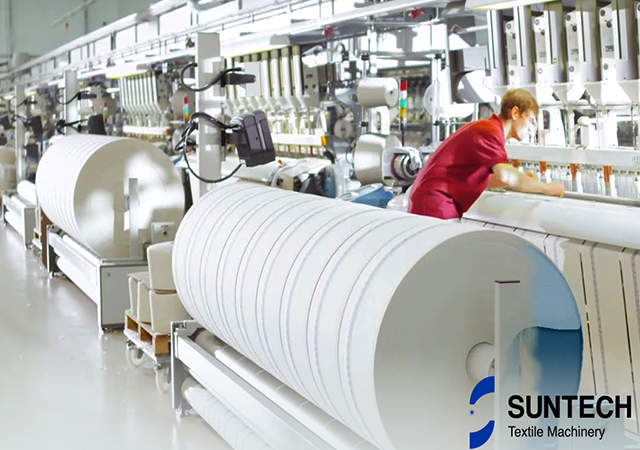Vietnam's economic trajectory has been nothing short of impressive in recent years. According to the World Bank, the country is projected to maintain a steady growth rate of 5.5% in 2024 and 6% in 2025. This robust growth has been attributed to several key sectors, among which the textile industry stands out prominently. Over time, Vietnam has transformed itself from an agricultural-dependent economy to one where manufacturing, particularly textiles and garments, plays a pivotal role.
In 2022, Vietnam's textile and garment industry achieved remarkable milestones, with an export turnover of 44 billion USD, marking a 10% increase compared to the previous year. However, this positive momentum took an unexpected hit towards the end of 2022. Global economic and political challenges, including the tense situation between Russia and Ukraine, sluggish economic growth, and rising inflation, cast shadows on the industry's future. The forecasted decline in demand for garments in key markets, such as the US and the EU, posed significant concerns for Vietnam's textile industry in 2023.
As the year unfolded, the initial months of 2023 painted a gloomy picture for Vietnam's textile and garment industry, characterized by a sharp decline in comparison to the same period in the previous year. While challenges are evident, they also signify opportunities for Vietnam to recalibrate its approach and remain competitive on the global stage.
One of the key areas where Vietnam lags behind its competitors, such as Bangladesh and China, is in the adoption of sustainable practices and environmental protection within the textile industry. Bangladesh, a country that was once trailing behind Vietnam in the textile and garment market, has now emerged as a frontrunner in green transformation. With nine out of the ten greenest textile factories in the world, Bangladesh has harnessed renewable energy sources, cultivated green spaces within factory premises, and prioritized worker welfare. The provision of free meals and fair wages for workers even during challenging economic times showcases a noteworthy commitment to positive change in the industry.
China, another major player in the global textile sector, has positioned itself as a pioneer in implementing cutting-edge technologies to curb waste in production processes. The European Union's new strategy for the textile and garment industry, emphasizing sustainable development, traceability, and recyclability, further underscores the changing landscape of the industry. The concept of transitioning from fast fashion to durable and sustainable clothing, often referred to as "solid fashion," aligns well with the growing environmental consciousness among consumers.

In contrast to these innovative strides, Vietnam's textile industry has encountered obstacles in its journey towards sustainability. Despite its strong export performance, the industry needs to address its shortcomings in sustainable practices and environmental consciousness to maintain its competitive edge in the global market.
To overcome these challenges, Vietnam should consider implementing a comprehensive sustainability roadmap that encompasses both technological advancements and ethical considerations. Collaborative efforts between government agencies, industry players, and international partners could yield favorable outcomes. Investing in renewable energy sources, implementing waste reduction technologies, and enhancing workers' well-being can not only boost Vietnam's global competitiveness but also demonstrate its commitment to a greener future.
In conclusion, Vietnam's textile and garment industry has made impressive strides in recent years, contributing significantly to the country's economic growth. However, challenges stemming from global economic uncertainties and evolving consumer preferences underscore the need for a transformative shift towards sustainability and environmental consciousness. By drawing inspiration from global leaders like Bangladesh and China, and aligning with international sustainability standards, Vietnam has the potential to not only overcome current challenges but also lead the charge in shaping a more responsible and resilient textile industry for the future.
SUNTECH Textile Machinery has the range of products encompasses almost all fabric types, including but not limited to pinking machine, loom machine, weaving machine, beam truck, fabric cutting machine, motorized beam trolley, beam storage, and fabric inspection machine. SUNTECH Textile Machinery continues to lead the textile industry with our innovative approach and extensive experience. Welcome quotes and cooperation opportunities from you!




